Juneteenth 2020, Washington, DC—In response to the historic Black Lives Matter movement, DC Theater Arts has committed to offer our communications channel to help amplify the BIPOC voices (Black, Indigenous, People of Color) that are now pointing the path to American theater’s future. The following Black Arts Roundtable represents a step toward honoring that commitment. This conversation—proposed, convened, and moderated by long-time DCMTA contributor Malcolm Lewis Barnes—was recorded from a Zoom meeting June 13, 2020, and transcribed for publication by Senior Editor John Stoltenberg. The read time is about 30 minutes.
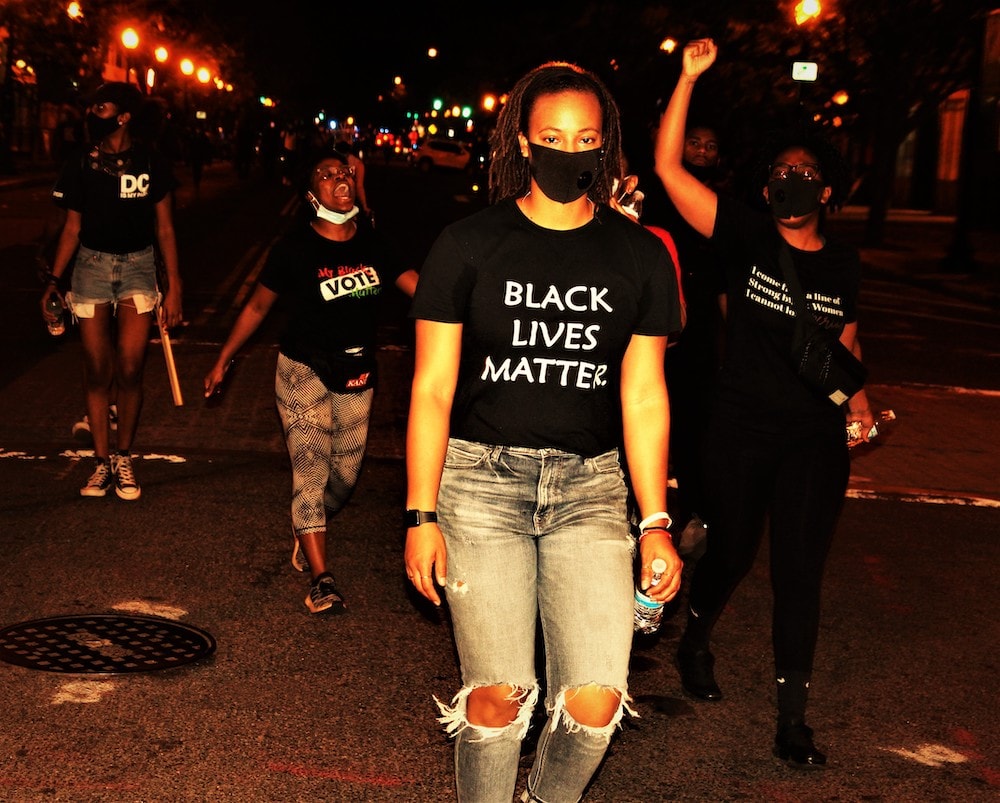
Malcolm Barnes (reviewer and photographer, DC Theater Arts): Why are you passionate about this Black roundtable?
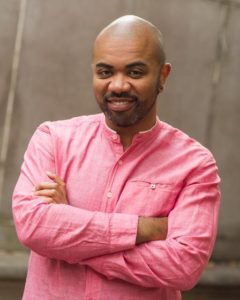
Raymond Caldwell (artistic director, Theater Alliance): These conversations are important to me because I’m in a Black community. This is my first season as artistic director at Theater Alliance, and the very first thing I did was move to Anacostia, to be of service to my community, to be in my community. I have been trying to push against the trauma narratives that I’ve seen on Washington, DC, stages in and around stories about Black people, so I purposefully wanted to produce a season to make a statement. The show we were producing right before we closed because of COVID was a play about the founding of the Black Lives Matter movement [This Bitter Earth], and initiating a conversation about what white allyship is. The work that we’ve been doing since I’ve taken over has been to serve the Black community I’m in. So I think these conversations are foundational—and that’s why I’m passionate about this chat.
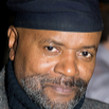
Lyn Dyson (alumnus, DC Black Repertory Company): I was part of the first and only Black Equity company here in Washington, DC, in the early seventies with Robert Hooks [DC Black Repertory Company]. And I’ve looked at theater from all angles in terms of institutional development, audience development, what white theaters are doing, and how they created their network. So I think I can bring a historical perspective, to look at not just the economic development that we need to do in terms of grants and foundations and so forth, but also the importance of audience development that we do on our own, and hopefully the ultimate development of a major Black theater in this town. I would still love to see that happen, where we are not beholden to someone else about what we do and what we don’t do and get our hand spanked for this or that.
So I’m very interested in collaborating, organizing, and I figure I have some idea of what it’s going to take financially. We’ve always done it artistically, but what do we need to do financially and what institutional building needs to be done? With the times happening now, Black Lives Matter is on the forefront. I think we should take advantage of the time, and that’s why I’m here.
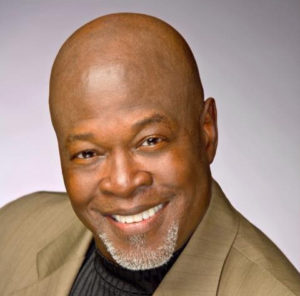
Bill Grimmette (actor and storyteller): I started my acting career in 1968. It was the year that Martin Luther King was killed, the year that Muhammad Ali was stripped of his title. And it was the time of the Black Power movement. We went through a similar thing that we’re going through right now. The Black community was proud to say: Black Is Beautiful and Black Power. We got into the theater business, and the theaters tried to maneuver to accommodate what was going on.
I got my first job in a theater because of this revolution, but there is a limit to trying to figure out how to merge all of these systems at once. You’ve got a financial system that does not dance to the tune of the theater; it’s the other way around. You’ve got a community that is split by design, but not by the theater. And you’ve got theaters in different locations trying to serve those communities, but the money doesn’t follow. The same thing that we have now is what we had then. I say that all to say that I’m trying to get involved again, because I was involved with all of the various repair or restorative mechanisms from the 1970s, trying to figure out how do we make this thing work.
When I came to town in ’75, in the DC area, Bobby Hooks had his DC Black Rep, they had Back Alley Theater, they had Ebony Impromptu, a lot of Black theater companies, but most of them on shoestring budgets. And so one of the things that we’re going to have to do is go back and look at the history of both the revolutions that we’ve gone through in the country and the the repair jobs so that we don’t strain the relationship between the theater and the community that it is supposed to serve—figure out how to tell this story as one.
Listen, it was traumatizing in the mid to late seventies, trying to figure out how to tell this story in an integrated way when the community was not integrated, the finances were not integrated. In the Black community, there was not a lot of money to sustain theater, but everybody still wants to say: Let’s go and get the money from the Black community. Well, you’re not going to find a lot of money. We know that. And so it’s gonna be up to us right here to tell a different story. Black Lives Matter is fine. They’ve got to do that thing. I love those beautiful kids and that’s wonderful, but remember Black Power? It was the same thing. We felt good. We got a lot of power out of it. But when you try to put systems together out of that, we need to make sure we take the anger out.
Look, let’s not think about the history in terms of creating new theater; let’s think about the mystery. Let’s think about some imaginative futuristic kind of thing. I don’t mean the theater structure so much as I mean the stories we’re telling, so that we can tell stories that are hopeful until we can figure out how to create historical systems to feed them. If you don’t do that, we’re going to always bump heads, because most white people who do racist things do not know that they are racist. So we should be very careful about how we’re going into the theater community, because we’re going to need that community to help us tell this story.
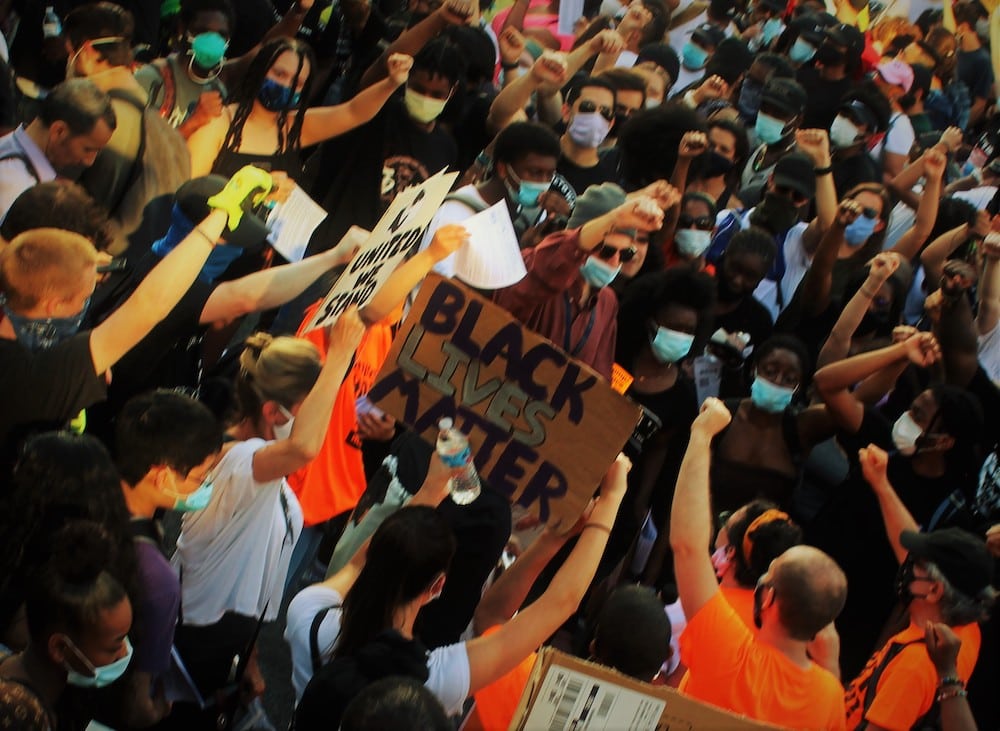
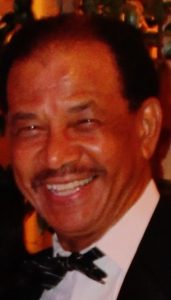
Malcolm: Lightning round. Give me your three to five hot button issues on a front burner related Black arts. I want to suggest one that pissed me off last week. Peter Marks did a piece on the state of Black theater, talked to people in Oregon, talked to people in New York, a few in Colorado, and he mentioned the young lady from Woolly [Maria Manuela Goyanes]. But nobody else in Washington seemed to be of interest to him. Was that intentional?
Raymond: Peter Marks reached out to me and I let him know that it was not lost on me, the irony of this moment. In the fall, when I first took over Theater Alliance, we were at the theaterWashington fall kickoff, and he was interviewing Maria, myself, and Chil [Kong], the new people of color who were taking over organizations. And when I talked about the work that I was attempting to do in Anacostia, he said: I’m going to be there, I look forward to being there for every show. And he did not come.
Later in the season, as we produced Day of Absence, we requested that the Post send people of color to review the show, a show that was about minstrelsy. We requested that someone with cultural context be able to review the show. They sent Celia Wren, a white woman. And most recently when we were producing This Bitter Earth, a show about the founding of the Black Lives Matter movement, we requested someone come and review the show and we were not even dignified with a reply.
So when Peter Marks now wants to reach out to me and ask me to talk about the state of Black theater, I let him know that it would not be in my good conscience to participate in an organization and publication who were not there for us at the beginning. I’m not going to tap-dance for you now because it’s convenient for you. I think that it is important that we put our money where our mouth is. And so, while yes it might have looked very good for Theater Alliance and Raymond Caldwell to be featured in this Post, it goes against my better judgment and my morals.
I let him know all of that in an email. He replied back and said: I am sorry. I told him that I would be a part of his interview if he were willing to talk about the ways in which the Post has been complicit in this systematic oppression of Black artists here in Washington, DC. And he simply replied: I am so sorry I have done you wrong. So that’s the story. He did reach out to me but for his own convenience. So I said no.
Malcolm: Do you have any other items in addition to what I thought was a slap in the face?
Raymond: I mean, all day long.
Lyn: What’s happening in theater is no different that’s happening in overall society, systematic racism. The systematic racism is in redlining in terms of housing. You see how the systematic racism is affecting us on health care, the pandemic. It’s no different when it comes to theater. You go to these theaters and you see the technical staff is pretty much white, your administrative people are white, your producers are white.
August Wilson had a debate where they [Robert Brustein] said: Why do you need Black theater? we can hire your Black writers, we can hire your Black actors, and we can even bring a producer in; why do we need Black theater when we can do it for you? That’s the systematic racism that’s affecting us continuously, you know?
If you look at Arena Stage or Woolly Mammoth or Studio, when they are lacking funding, a big hit, they bring some Black shows and that puts them in the black. They’ll run two or three of them now. Before they would just be obligated to do one Black show that was a token show, but when they saw Black shows making money, oh man.
So, Bill, I’m going to disagree to some degree. I think there is money in the Black community. I think we have the marketing tools, the sophistication to get them out. We have to plug into the fraternity, the sororities, the civic associations, the unions before a show even comes to town. You can’t put up a show then all of a sudden: Oh, where’s my audience?
I just did Shirley Chisholm [Odell Ruffin’s play Campaign ’72] at the Eaton Hotel back in February, right before the pandemic hit. I got $500 from the city, but I raised all my budget to do the show from groups and organizations and small businesses taking ads out in my program. I put on a show without any funding. Can you believe that? There are systems in the Black community that will support you, but you have to become sophisticated in your marketing, sophisticated in your arts administration to be able to make that happen.
When I look back at Bobby Hooks, I mean, man, we had it all, but you have to have top-notch arts administrators who understand the foundation world, understand the corporate world, understand audience development, to support the artistic. The money’s there, you see it, you see them pouring into Arena Stage, you see that middle- and upper-class Black folk they got money, Black folk even getting on the board of some of these white theater companies helping them raise money. So the money is there. We just have to become sophisticated in how we support our art and begin to make that happen.
You know, you can get your corporate money, your foundation money, your government money; and when you’re not in season, they won’t give it to you anymore. So when you get that seed money, you got to learn how to use it to develop earned income to support Black art, quick, fast, and in a hurry. Corporations, the foundations need to give money, but you need to ask for it. And when you don’t get it, you need to know why you didn’t get it.
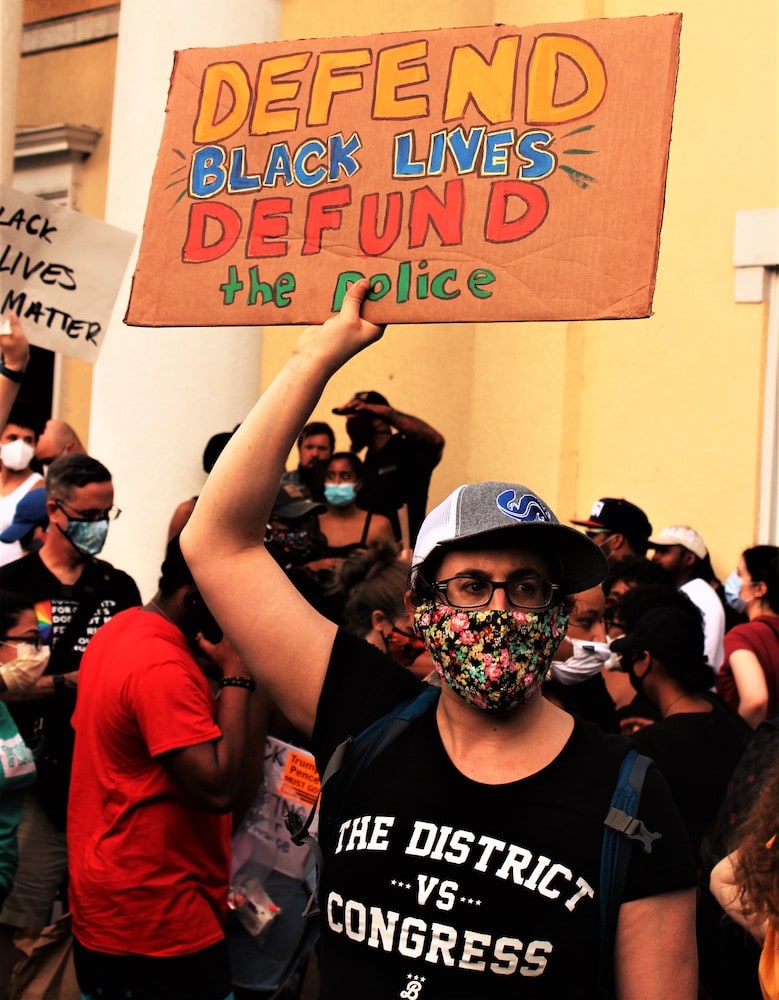
I just wrote today to David Markey in an email trail of others at the DC Commission [on the Arts and Humanities] how these white theater companies come into the Black community and do these workshops for the underserved youth, get all kinds of grant money for it, and then you look at their budget and you have this heavy load on the administrative side. There’s a small amount of money for teaching and programming, and smaller money for hiring some Black actors. I was saying to him that you need to deal with those companies that are in Ward 7 and Ward 8. And if they need some technical assistance on those damn proposals, put some money up, to give them the technical assistance so that they can serve their own community.
If you look at Ward 7 and Ward 8 budgets as compared to Ward 3, 2, 5, 4, it’s a pittance compared to the budgets every place else. This is the systematic racism I’m talking about. These are the kinds of things that we have to begin to address and don’t shy away from. And don’t feel that if I speak up, I won’t get funded. You gotta say something,
Bill: Look, we fought this battle. I was with ACTCo when John Moore created ACTCo. It was then the African Continuum Theater Coalition. And the whole design of that organization was to be a sounding board for the Black theater companies that were in the region and help them raise funds and to study why they were not getting funds. We did a lot of that work in the late eighties, early 1990s, and then ACTCo after I left the board became the African Continuum Theatre Company. We had all kinds of people come in and study the whole funding issue. And we just could never get the critical mass in the Black theaters to include DC Rep. So some theaters were doing better than others, but none of them were doing the kind of work that could’ve commanded the kind of money they needed to draw in order to sustain a season that was really competitive. So we said, okay, there’s a racial component here. We knew that. And everybody knew it.
We talked to Arena, we talked to Michael [Kahn], we talked to everybody, and they knew that there was a racial component in here, but nobody knew how to unplug it. Right now what we’re trying to do it seems to me as a group is we’re trying to figure out how to tell the story so that we can help people figure out how to do this differently. Because part of the outreach program that you were talking about are things that we recommended to these theaters to help build the Black audience, so they could come to the theater and pay the money.
Now, we know that there’s money in the Black community. We know that Prince George’s County and parts of DC, people work for the government and people have investments. But we also know that all those communities have taken a big hit. First, they took a big hit in 2008, during that crash, and this time they took an even bigger hit. We don’t know what that means, how that plays out. But what we do know is that it’s going to have a big impact on theater and how theater is funded. We also know how theater is funded. Now, we would love to change that formula.
I was talking to Michael Bobbitt, Raymond, just before coming on here. Michael Bobbitt runs a theater up in Boston, New Rep[ertory Theatre], and he was talking about all these great ideas that he has, but in the final analysis, in order to get the money, you have to be able to go in and dance for the people that’s got the money, the way the theater is funded right now.
Let’s be clear. We can sit here and talk all day about what we want to happen, but damn it, we have to dance for the people that’s got the money. We don’t like it, but we have to. And so, while we’re talking—and we’re talking about telling stories here—how will we in this group tell the story and help our actors in the theaters and all of our theater people tell a better story? I don’t mean on the stage; I mean in talking about how to get funded and how to get reviewed. We know we need a different formula, but we don’t know what that formula is.
Raymond: There are a couple of things that are running around in my mind right now, about the history of Black theater here in Washington, DC. This is why I came to DC. I wanted to be in Chocolate City making Black theater.
When I first got here 13 years ago, I was working with African Continuum and seeing disparity. At night I would go to rehearsal at African Continuum, but then during the day I was at Arena Stage. And the things that we had at Arena Stage were so different than the things we had at African Continuum.
I started to realize and piece together what was happening at these larger predominantly white theaters. It was the ways in which they talked about Black theater. You know, there’s this thing in whiteness and the white community around professionalism. Professionalism is often coded and defined by whiteness, right? So it was very easy for them to say: Well, African Continuum isn’t as professional, and therefore create a series of barriers for funding that would create a series of barriers for audience.
If Arena Stage wasn’t touting African Continuum’s work, as they should have been, why weren’t they? They were in Southwest, a predominantly Black community, but they saw African Continuum as competition. And what African Continuum could do is actually bring legitimacy to these Black stories in ways that Arena Stage in all of its whiteness never could.
I was just on a weekly call with the leadership of the mid- to large-level companies. And at this leadership meeting, I told all of those white leaders—’cause of course, here I am, the chocolate drop in the room—I told them: You know, what you don’t want to hear is this: You need to burn your institutions down to the ground. And the children were shook, they did not know what to do, but that’s the truth.
If Black people were not there at the founding of these institutions, then the idea of anti-racism isn’t at the core, isn’t at the mission of these organizations. So how are they ever truly going to integrate? Instead, what they’re doing is bringing a select few Black voices in and then pointing to those Black faces and going: See, we’ve integrated, we’ve solved the problem. But they could not solve the systemic problem, the problem at the core.
Bill: We can talk about racism in the theater. We know racism is systemic. But when you say systemic racism, no one person can change it. No one white person can change it because it’s not them; it’s the system. So we need to be real careful about this and make sure we understand what we’re talking about here. Systemic racism means that racism is built into the structure. And no matter what anybody does, it just keeps going as if there’s no dashboard or control mechanism. If we’re trying to hold people responsible for changing it, and they can’t, where are we?
Raymond: The control mechanisms are white people who are leading these white institutions. What they need to do is actually give up some of this white privilege. They need to—
Bill: How do you do that? How do you do that?
Lyn: I’m listening to you all. White folks are not going to give up any white privilege of anything. You know, they gon’ be who they are. And for this season, they are on the hot seat. With their white liberal selves, they’re going to give some lip service and they are going to put out statements about the importance of diversity—but then go back to being who they are. They are not going to change.
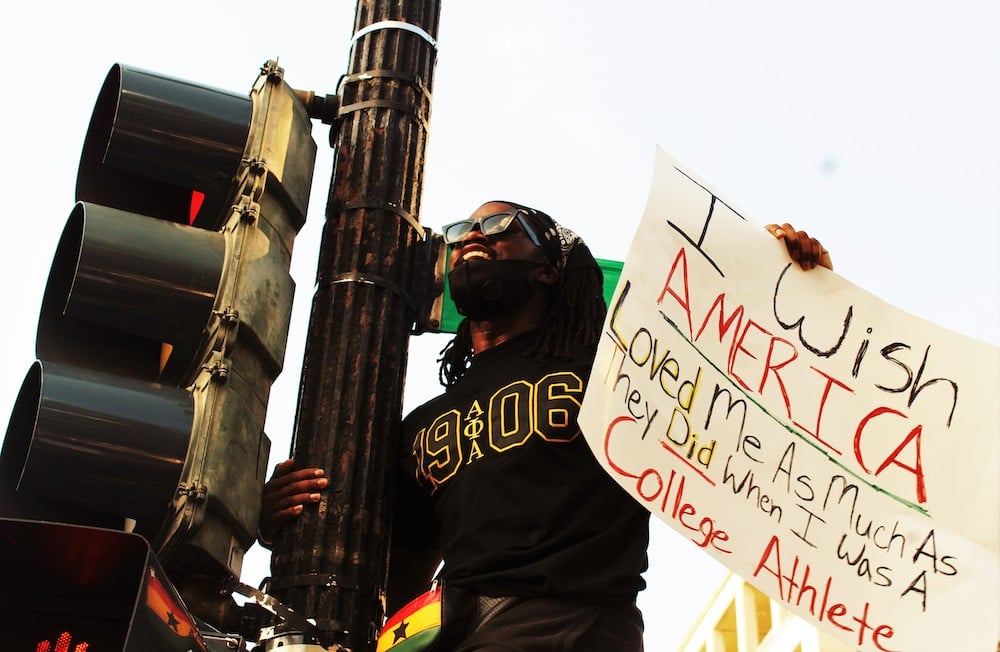
Let me give you an example. You all may disagree with me. Look at Tyler Perry. Now, you all can talk about his shows and his buffoonery and all of that kind of stuff. And I think that as a writer, he needs some help on a lot of things. But you know, he did the whole Chitlin Circuit theater and he failed, but he kept pushing, and he wasn’t dependent on the white money.
Audiences related to him because he had a strong spiritual base. He would talk about all kinds of nonsense and aired our dirty laundry while making us laugh—he knew the nuances of the Black community, but he always had that spiritual base that brought them back, and they kept coming. And he started to raise money, and he continued to raise money. Then he began to become more sophisticated in his scripts. Then he started hiring Cicely Tysons and A-listed Black actors and started hiring all the folks that were “legitimate theater.” And before you know it, white folk jumped up and said: Damn, this Black man’s making money; let’s throw some money at him.
He wasn’t waiting for the white racist system to give up anything. He just went on and did his thing. He created networks of groups of organizations throughout this country. See, if white folk see something is working and they didn’t have nothing to do with making it happen and they see it’s making money, they going to come to table and throw money at it because they want to make money.
Now he has this big, huge studio that’s larger than some of the damn studios in Hollywood. And all that happened from him starting his Chitlin Circuit kind of shows. I hope that as time goes on, the Cicely Tysons and all the very legitimate theater folk will continue to work with him, and he will begin to hire some strong Black writers, and he’d just be the executive producer and throw the money at them to make it happen. His writing and directing will ultimately improve—he even named a studio on his lot after Spike Lee, lol. But I’m just giving an example—that we begin to not wait for the power structure to change or give up anything.
Raymond, if you wanted to put on a show and you didn’t have any funding to put it on, you go to some of these Black businesses and get them to buy some ads in your program. You go to the civic associations, the ANCs, the unions, the schools, get some money from the city. These corporations, especially corporations making money off of Black people, they better give up some of that money. And we can put money together to get a show up. It may not be for a whole season. You might get that show up without enough money to take you to the next show. But then you go to the foundations and corporations and say: Look, I’m making this money, match it. I made 20 grand, match it with another 20 grand. And you just continue to build that way, with us not waiting around for someone to give up some power.
You know, we are the power. We have the power within our community. It’s not easy, but we can do it. We’ve done it. Black folk when we had our own institutions, we had a whole network of four-walls Black movie houses all over the country. And we did it. Oscar Micheaux, recently with Halie Gerima with his film Sankofa, he did not wait. So it can be done. But it just takes some progressive-minded people to get very sophisticated in how we begin to raise our money.
You got the Magic Johnsons, you got all these Black celebrities that have foundations. Those same Black celebrities that gave money to the African Museum on the Mall, they can give money here also and get us up and going. Then with the money that we have raised, we can raise and attract more money. That’s what I was hoping, that we as Black folk begin to think about how we become very sophisticated in our marketing and raising money and not wait for anybody to give us power. We already have the power.
Bill: We’ve done that. And we should do it again. I totally agree. So don’t get me wrong here. I’m not disagreeing. We should try to build these theaters. Like the one that you’re running Raymond, we should try to build it. What I’m saying, though, is let’s just be careful that we are looking at this in the right direction.
Arena Stage, they have a multimillion-dollar budget. They’re running a factory over there. And that’s a different thing than just running a simple little theater. Studio Theatre is a lesser-sized theater, so they have to run theirs differently, but now they are moving up. When I first started, all of those theaters, Woolly Mammoth and Studio Theatre and all of those guys, were running out of a church basement, with new playwrights and all of that. And we had a lot of Black theaters too: Ebony Impromptu [Theatre], and Milton McGinty in the ’80s had Takoma Theatre up in Takoma Park. But none of those ever got the same kind of footing that a Studio got.
So how do we tell this story? How do we tell the story about not the legitimacy but the power of the theater? And it seems to me that how we tell our story is going to be more important than the stories we put on the stage, in terms of our being able to imagine a future that is inclusive as opposed to a future that is competitive.
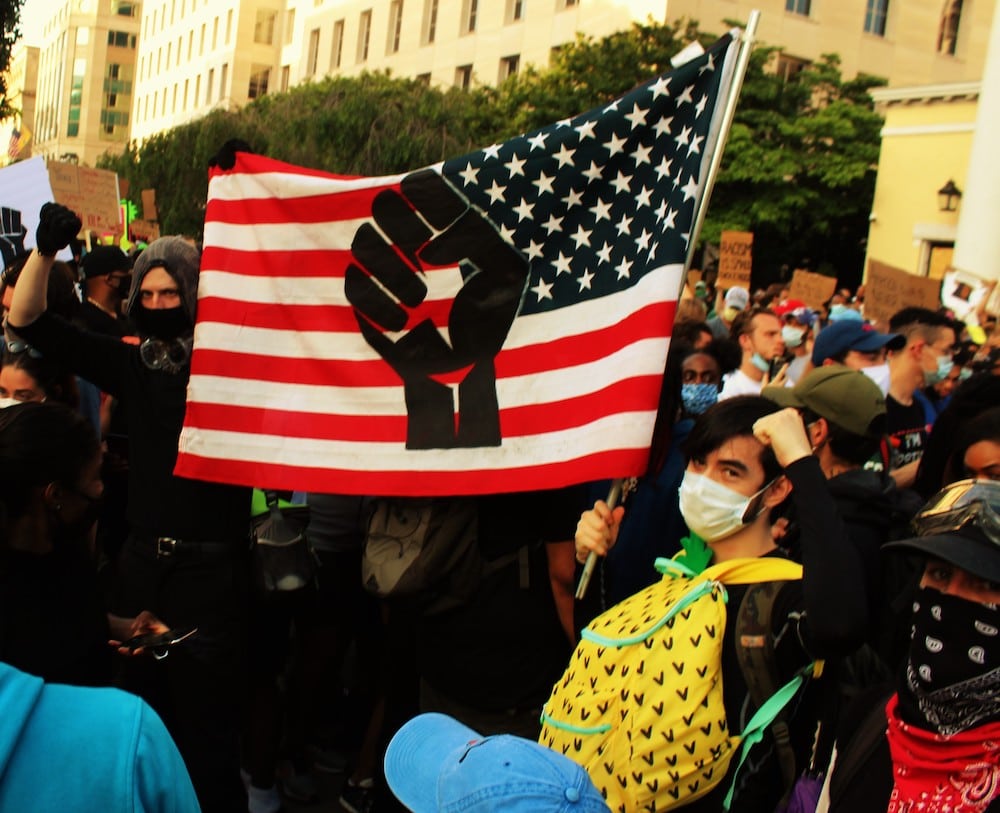
Malcolm: Is Black Lives Matter a watershed moment for America? Last weekend there were 10,000 actors on the street. The biggest, most profound, most dynamic, organic theater was happening in 16th and H Street. They are now advancing the concept of defunding the Metropolitan Police Department and directing those funds to community services. Frederick Douglass says: Nothing comes without a demand. I think this time Black theaters should coalesce and demand.
I’ve heard stories from Natalie Hopkinson, who got appointed, as a result of the #DontMuteDC phenomenon that went viral last April, to the DC Arts and Humanities Commission. And she’s saying white folks are walking out the door with anything they want. And Black theater companies and Black organizations are getting nothing, crumbs off the table. We are part of the problem. We have a Black mayor and she is allowing resources be abused that could be coming to our community. I throw that out because I saw last weekend as a watershed.
Raymond: You know, I think that this is generational—it reminds me of my argument with my father. My Black father always used to tell me: Them white people aren’t going to come up off of that power. And this used to be our argument back and forth and back and forth. And when I think about millennials, myself being part of this movement, I think about the ways in which our parents told us to be good, to work within institutions, to get a seat at the table; and then when you have a seat at the table, you’ll enact real power. So now here we are with our seats at the table. And there’s that really beautiful “Dear White American Theater” letter that came out from a lot of BIPOC artists saying: No more.
When we start thinking about the power that we the creators actually have, we are the brown and Black voices in these white institutions. So when we Day of Absence them—when we say: Then fine, we’re not going to come; we’re not going to bring our work to you—then does it give those institutions the motivation actually to shift and change? I think that that’s the hope of this movement and this moment right now.
I think that to your point, Bill, the asks have to be really clear, because I think in the past what we were saying was: Let us in, give us the same amount of funding. And now I think what many arts administrators who have been at the table are asking for are real specific things: diversifying your leadership in tangible ways, so that it is a percentage of the community that you actually are serving. That’s not too much to ask for.
These regional theaters, regardless of what we are, Black institutions, white institutions, I think of the regional theater as an idea. And the idea ultimately is that we are the creators of culture. Cultural institutions teaching our communities how to live with one another, how to grapple with some of the most difficult moments of our time. So if we’re actually going to do that work, then leadership, then the work that’s on stages, then boards, actually need to be representative of the demographic of people that are in that community.
What gets really tricky is, organizations like Studio and even Arena once upon a time were seated in predominantly Black communities and now find themselves in predominantly white communities. So if you produce Black trauma, I ask: Why? Who are you producing this for—for the white community that you’re now seated in?
It gets to a greater thing for me about cultural organizations being intentional about who they’re serving, because I don’t have a problem if you say: We are serving Southwest. Well, then, fantastic. Then serve the community in Southwest, the way that Arena Stage at its founding actually did. And let’s talk about history. You know, the thing that Arena Stage continues to pat themselves on the back for is the fact that they integrated their theater first. But what they’re unable to talk about is the difficult relationship that Black artists have while working within the hallowed halls of their institution.
Bill: Let us focus on what it really means to be systemic. The word is systemic. Let’s just examine, without talking about race or racism, the whole concept of systemic, because I got a feeling that one of the things we’re up against we’ve come up against more times than we know.
In the ’70s, we started out with nontraditional casting. We said we didn’t have any Black plays, so when we got to the table, they ask: Okay, what do you want? We said: Well, we want to be in a cast. They said: Well, all the plays we do are written by white guys, and we don’t have many plays written by Black guys. We said: Okay, let us be cast in those. You see the point. We’ve been through here. This is another iteration of what we’ve been through.
Malcolm, you asked if Black Lives Matter is a watershed moment. I think it is, yes, more than what it was in the ’60s and ’70s with the Black Power movement, because now we got Black kids and white kids and white people understanding, and they’re going back and they’re reading about their trauma. So what we might want to be careful about is not about asking big. We need to ask big. But let’s be careful that we don’t get people charged with a racism before we have a chance to sit down and have a conversation, see what they have learned in this two weeks.
In this two weeks, they’ve been buying all these damn books on things, they’re reading, they’re watching, they’re seeing for the first time what we meant. This time, Raymond, we have an opportunity to be very bold. And what I was talking about, Lyn, was: let’s think more imaginative about how we can convert this into the power of future potential rather than revenge for the past.
Raymond: That is about giving folks vocabulary, right? That’s what cultural organizations do, that’s what theaters do, we give you a vocabulary to have the difficult conversations. So what white people need is the vocabulary to have conversations about systemic racism, the systemic racism that they benefit from in small ways, because those are conversations that can only happen in that white space.
And then conversely I think it’s important for us as Black people to have conversations about the trauma of living and existing within these systems, how to survive in a system that wasn’t built for you to succeed, that creates traumas.
And so how can we all have conversations, learning to have a vocabulary, so that we can actually tangibly talk to one another outside of our traumas and outside of our privilege, but just about the fact?
Bill: Right. So privilege, white supremacy, white superiority, white privilege, racism, and systemic—all those things we need to explore, we need to explore those so we make sure that we’re talking about the same thing. I would guarantee you that most of us are not. And so once we begin to understand what we’re talking about, then we can go to the other communities and say: Okay, guys, here’s what we really mean.
Raymond: I’ve been reading this book about the history of DC, Chocolate City. It’s an amazing book because it’s capturing the history of a city and the ways in which this city has always been an incubator for ideas, ideas that are sprung throughout the country, but then have to start here because of the unique relationship with Black and white citizens. It’s only here in Washington, DC, that we have this very complex relationship. I love that idea.
Lyn: Well, I think that there is an acute energy of awareness that is happening in systems that we are looking at and that you want to explore, build—to explore and look at and create language for it, for white folk to fully understand our point of view. I think that’s great. Maybe they will get it. Maybe they will understand it. Maybe they will begin to do some things. But I also feel that while we’re doing that, we also have to begin to build our own institution and develop our own systems of doing what we need to do.
I think we need to take the Black theater movement into partnership with the Black Lives Matter movement. And I think we all need to come together because this is not a moment when the cameras are gone, everything goes back to normal. People are still out there marching, and Obama came out and said: It’s not going to happen at the federal level, so you have to start it at the state level, at the city level, the county level, where these changes are being made.
As a theater group in your city, whatever those changes are being made, you need to latch into that. You’re not theater over here and the rest of society is over there. You need to latch into what the City Council is doing, latch into what your ANCs are doing, latch into what the Black local chapters of the Black Lives movement is doing, because they are the energy of the people and the awareness of the people. And as they begin to make plans in this new day that we’re creating, you are at the table as Black theater artists being a part of those plans.
So then when the Black Lives movement knocks on the door of Mr. Corporate America, knocks on the door of the banks, knocks on the door of the foundations, knocks on the government, you’re still right there with them saying: Hey, if we don’t get what we want, then we will bring the masses of people out, and we will demonstrate, and we will put pressure. You know, like Frederick Douglass said: “Power concedes nothing without a demand, it never did and it never will.”
Theater needs to be tied into the fabric of what’s happening in the community. You can’t be over here in this ivory tower theater and then look at the rest of society. I think that any Black theater company or Black arts movement needs to tie in closely with the Black Lives Matter. We would need to tie in with Al Sharpton nationally and the Chuck Hicks and Frank Smiths and the #Don’tMuteDC locally—all the progressive folk here in DC, Anita Bonds. Anita Bonds is throwing down at the City Council right now.
Those kinds of tie-ins need to happen so when we go to Arena Stage, you just don’t go as a Black artist, you go with the fire power, you go to Studio Theatre with the fire power, when you go to the Kennedy Center you go with the fire power. And it’s an awareness, an acute awareness that just not today and gone tomorrow. You go to these white institutions from a place of strength as a collaborator instead of submissive as a subcontractor if you “have” to work with them.
Black Lives Matter been kicking butt for a long time now. I was wondering how they were going to function in the Trump era, and they were quiet for a minute, but this has lit the fire. And I don’t think the fire is going out now. So let’s tie in. Let’s study systemic. Let’s create the new language. Let’s talk to the white folk and hopefully they’ll understand, and hopefully they’ll get it, but they’ll get it when you bring the power. When you bring the fire, that’s when they’ll get it. You know, when something comes down and we bring out 500 people with signs, protesting something on the front of their theaters, in front of the Washington Post, in front of the Kennedy Center, they’ll get it. What did Frederick Douglass say again—?
And you’re not separate; you’re part of the fabric of the community. So we can be working on the internal thing that you are talking about, Bill. But we’re also out in the street with the activists working on the outside of it and creating our own systems of being able to raise money and create our structures with our groups and organizations to support our art. You know, as we begin to talk about a new language on how to interpret it to white folk, we’re also creating our own language for our own artistic endeavors.
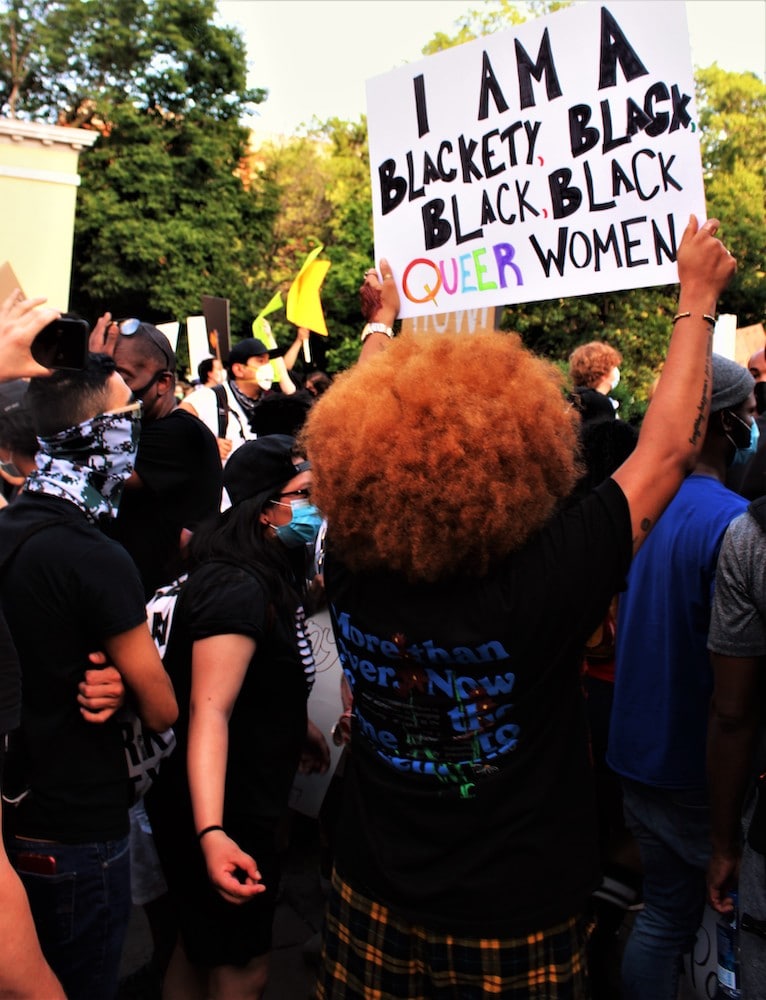
Malcolm: What’s the next step? Raymond, you are in my mind the model of a Black theater company owner and visionary, and Theater Alliance is now a Black theater company. Is there a need for coalition? Is there a need for unity for all the players and actors to come together in a single voice and say: We demand these resources? What’s the game plan?
Raymond: It’s tricky for a lot of actors. Equity is letting us know when folks can come back to work. A number of Black actors, particularly here in DC, have really leaned into their own activism. And I think that many of us have been spurred on by the ways in which we’ve been complicit as we’ve worked within these white institutions. As this movement begins, we start to look at the spaces that we’ve been occupying and the ways in which we, our voices, our energies, have added to this. So it’s now a really dynamic time.
I’ve been having amazing conversations with Black artists who are really exhausted by this conversation, right? Because we as Black artists are having this conversation constantly. And when we’re in white institutions, we’re giving one another the side eye, like, How are we going to survive this? And so it’s interesting to find and now talk to a number of artists who refuse to return to that normal, who do not want to go back to that and who have seen in this movement a way forward to transforming the community at large.
Lyn: If we all come together, it has to be a coalition of the active people that are doing theater here, and we need to go to the city and find a building that we own. Maybe we rotate different companies, do a show and create a season. How in this town we cannot have major funding for a Black institution, I just want you to get that.
I had my Equity card at 22 years old from a Black theater company here in Washington, DC. There was no question about anybody talking about us being professional. You know, we were bigger than Studio Theatre. We were bigger than Woolly Mammoth. But raising money in the era of Reagan and having Black arts admin folk not very plentiful—well, history is what it is, systemic; it was not fair. Can you imagine a 500-seat Black Equity company in 1971, the DC Black Rep,, where would we be today? Multimillion-dollar complex like Arena, Woolly, Studio— We were systematically stopped—very intentional.
And I’m saying that same thing can happen again, but we have to get our small theater companies all coming together, leave ego at the door, and pull our energies together, and still have the conversations about systemic with the white folks, hope they understand and all that, but at the same time, we’re building our own. And that’s how we move forward.
Raymond: I think that there’s a model in other cities for a shared art space, right? And then to demand of the city that in this historically Black city that it be a Black arts space. I don’t think that that’s an unusual demand. I think that is a demand that the city could and should meet, and how they manage that space and all of that, that needs to be something for the city to decide, but to your point—
Lyn: Well not they manage; we manage because we own it. We need to buy the building. We ain’t renting shit from nobody anymore. We own the damn building. We manage it. And we demand funding from the city, from foundations, from corporations. And we jointly all raise money. You know, let’s not shy away from that.
Bill: That sounds bold, Lyn. You and I been doing this for a long time and you know damn well that those two things don’t go together. You can demand all you want and you can buy a building, but we have people who have had buildings and we’ve had these structures. I’m not saying don’t try it, but let’s not think that by this time next year, we’re going to have some robust theater company that’s different from what we’ve got now.
Even the theaters now don’t have any idea how they’re going to exist. They don’t know what they’re going to be. At this moment, right here, our best idea, it seems to me, is to help them, whoever the hell they are, Raymond and everybody, help them imagine our new future. We have to be at that table right now, imagining what the future is going to look like. Because if we are not, we will not be at that table when this is over.
Lyn: Bill, I was born from bold. Bobby Hooks showed us that in 1971. But I agree with you, we need to be supportive of all the Black groups that are here and nothing is going to happen in a year in terms of the big picture of what we’re trying to get to. That’s the process, you know. You and I have been around long enough to know that doesn’t happen in a year. You know, let’s have this conversation, if you and I are still here, let’s have this conversation in three or four years in a building on the foundation that we start now.
Bill: From your lips to God’s ears.
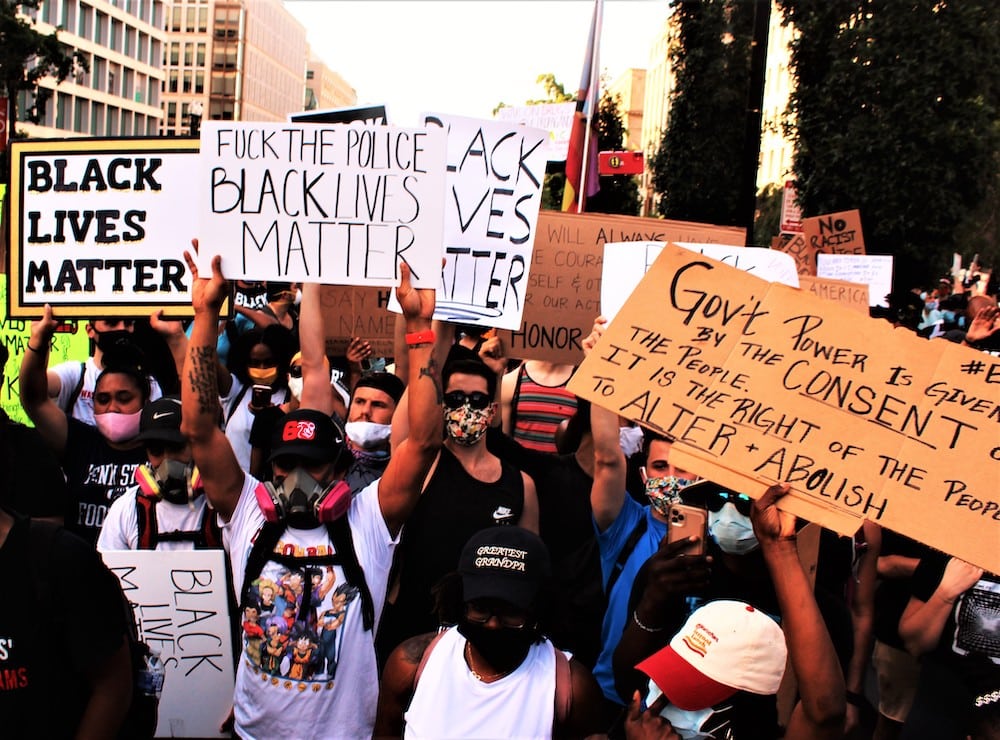
SEE ALSO: “For BIPOC women in theater who have had enuf: A roundtable on resistance”
RELATED: “The #WeSeeYou White American Theatre movement is ready to end a battle it didn’t start”
Malcolm Lewis Barnes is the Publisher of The New North Star digital family of specialty eZines including DMV202ARTS, whose mission is to expand the reach of the DMV Creative Community and showcase local artists, events, and venues. The opportunity to moderate the Black Arts Roundtable is a natural extension of the collaborative content-development relationship with DC Theater Arts that has grown over the past five years.
Inspired by a Comment I left for fellow DCMTA collaborator David Siegel on his assessment of the Mayor’s ReOpenDC and a greater sense of urgency fueled by the Black Lives Matter protest, I am grateful for Senior Editor John Stoltenberg’s invitation to contribute an opinion piece on the weekend of the zenith of the BLM action. What followed was the opportunity to moderate the Black Arts Roundtable. Let’s expand the circle and keep the dialogue alive!
Raymond O. Caldwell, artistic director of Theater Alliance, is an accomplished actor, director, and teaching artist. As an actor, he has toured nationally and internationally. He has worked with playwrights including Ntozake Shange, Edward Albee, and Tarell Alvin McCraney. Internationally, he has directed and developed new work in India, Ukraine, Greece, Germany, and the UK. For five seasons, he has worked for Arena Stage’s Community Engagement Division, following a year spent as the company’s prestigious Allen Lee Hughes Community Engagement Fellow. He received a BFA in Acting from the University of Florida, and a MFA in Acting from the Ohio State University.
Lyn Dyson feels like a native Washingtonian. He was born in New York City, lived a few years in Virginia, and eventually came to Washington, DC, in 1962 at ten years old. As a McKinley High School, Howard University graduate in the School of Communications, while a trainee , he came up through the ranks at The DC Black Repertory Company as a trainee, professional actor, instructor, community relations director, and ultimately the executive director under the revamp, Rep, Inc. When he left the Rep, Inc. in 1982, he founded Multi-Media Training Institute based on the format of the DC Black Repertory Company. Instead of training in theater, he was training in the media arts and digital production. Lyn is now ready to pass the baton to his trainees and he presently is working in the investment real estate arena at EXIT Deluxe Realty in Chevy Chase, MD—still very committed to empowering youth and young adults in the media arts to speak truth to power and justice for all people. He has one son, Ameer Dyson, who he is very proud of.
Bill Grimmette has been an actor for 52 years. He began his career in 1968 in Indianapolis. After moving to the Washington area in 1975, Bill began working on stage, in film television, and as a living history storyteller. While acting was his chosen career, Bill’s greatest passion was in storytelling, where he has portrayed such grand historical figures as Frederick Douglass, W.E.B. DuBois, Martin Luther King Jr., and Benjamin Banneker. His latest stage performances in the region included a portrayal of Lear in King Lear at the Atlas Performing Arts Center for the Lean & Hungry theater company, directed by Jessica Hansen; Hoke in Driving Miss Daisy at the Riverside Center for the Performing Arts in Fredericksburg, directed by Rick Hammerly and starring Karen Grassle (from Little House on the Prairie); and in 2015 Bill was in the inaugural production for Mosaic Theater Company of DC playing Felicien in Unexplored Interior (This Is Rwanda: The Beginning and End of the Earth) by Jay O. Sanders and directed by Derek Goldman. Bill is now working on a story to enchant the African American experience into an epic myth that adds purpose and promise to the centuries of suffering. He lives in Odenton, Maryland.




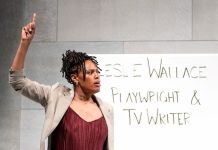
Remember when Frankie Hewitt of Ford’s Theatre used to do “Black” shows, written by white people?
I remember my dad working on “Storyville” with Luther Henderson, and their caustic comments about the show being written by whites for a black audience. Ford’s did this all the time in the 1970’s.
Thanks Catherine. I will make an effort to reach out to ‘historic’ Ford’s Theatre and get their perspective on their effort to ‘diversify their audience and show offerings a generation ago!